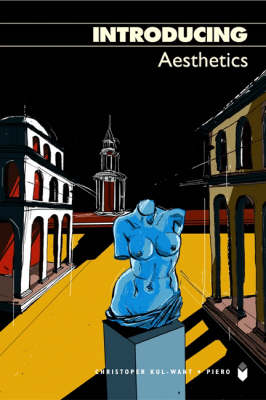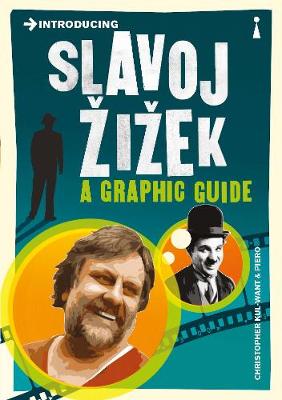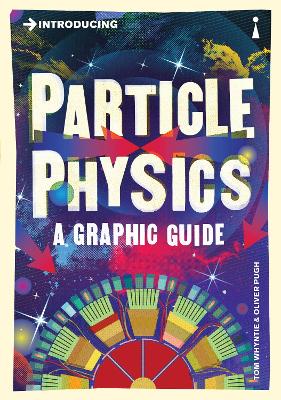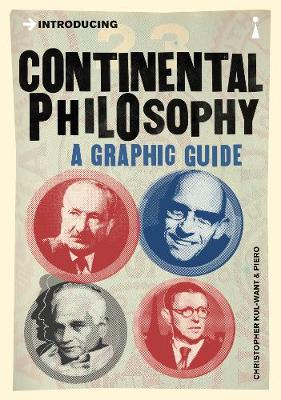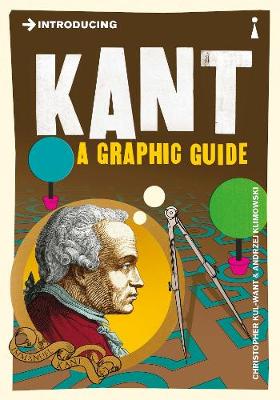Introducing...
6 total works
Introducing Graphic Guide Box Set - Mind-Bending Thinking
by Tom Whyntie and Christopher Kul-Want
Using comic-book style illustration combined with accessible but authoritative text, the Introducing Graphic Guide series is a uniquely brilliant way to get your head around some of humankind's most thrilling ideas.
What really happens at the most fundamental levels of nature? Introducing Particle Physics: A Graphic Guide explores the very frontiers of our knowledge, even showing how particle physicists are now using theory and experiment to probe our very concept of what is real.
What makes philosophy on the continent of Europe so different and exciting? And why does it have such a reputation for being 'difficult'? Covering the great philosophers of the modern and postmodern eras - from Nietzsche, Heidegger, Derrida and Deleuze right to up Agamben and ?i?ek - and philosophical movements from German idealism to deconstruction and feminism - Introducing Continental Philosophy: A Graphic Guide brilliantly elucidates some of the most thrilling and powerful ideas ever to have been discussed.
Covering topics from philosophy and ethics, politics and ideology, religion and art, to literature, cinema, corporate marketing, quantum physics and virtual reality, Introducing Slavoj Zizek: A Graphic Guide deftly explains Zizek's virtuoso ability to transform apparently outworn ideologies - Communism, Marxism and psychoanalysis - into a new theory of freedom and enjoyment.
Charting his meteoric rise in popularity, Christopher Kul-Want and Piero explore Zizek's timely analyses of today's global crises concerning ecology, mounting poverty, war, civil unrest and revolution.
Covering topics from philosophy and ethics, politics and ideology, religion and art, to literature, cinema, corporate marketing, quantum physics and virtual reality, Introducing Slavoj Zizek deftly explains Zizek's virtuoso ability to transform apparently outworn ideologies - Communism, Marxism and psychoanalysis - into a new theory of freedom and enjoyment.
What really happens at the most fundamental levels of nature?
Introducing Particle Physics explores the very frontiers of our knowledge, even showing how particle physicists are now using theory and experiment to probe our very concept of what is real.
From the earliest history of the atomic theory through to supersymmetry, micro-black holes, dark matter, the Higgs boson, and the possibly mythical graviton, practising physicist and CERN contributor Tom Whyntie gives us a mind-expanding tour of cutting-edge science.
Featuring brilliant illustrations from Oliver Pugh, Introducing Particle Physics is a unique tour through the most astonishing and challenging science being undertaken today.
Continental philosophy was initiated amid the revolutionary ferment of the 18th century, philosophers such as Kant and Hegel confronting the extremism of the time with theories that challenged the very formation of individual and social consciousness.
Covering the great philosophers of the modern and postmodern eras - from Nietzsche, Heidegger, Derrida and Deleuze right to up Agamben and Zizek - and philosophical movements from German idealism to deconstruction and feminism - Christopher Kul-Want and Piero brilliantly elucidate some of the most thrilling and powerful ideas ever to have been discussed.
Introducing Kant focuses on the three critiques of Pure Reason, Practical Reason and Judgement. It describes Kant's main formal concepts: the relation of mind to sensory experience, the question of freedom and the law and, above all, the revaluation of metaphysics. Kant emerges as a diehard rationalist yet also a Romantic, deeply committed to the power of the sublime to transform experience. The illustrated guide explores the paradoxical nature of the pre-eminent philosopher of the Enlightenment, his ideas and explains the reasons for his undiminished importance in contemporary philosophical debates.

